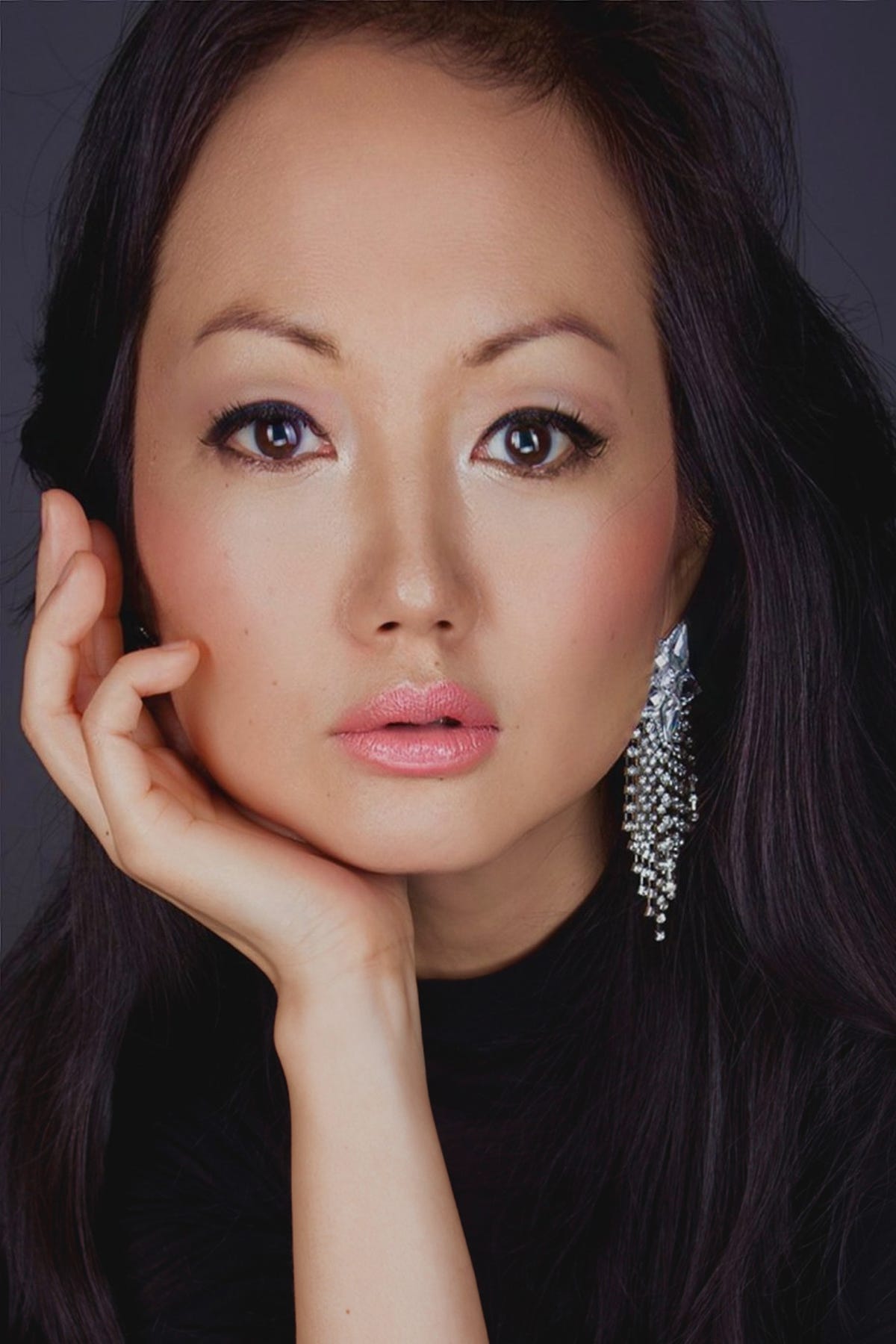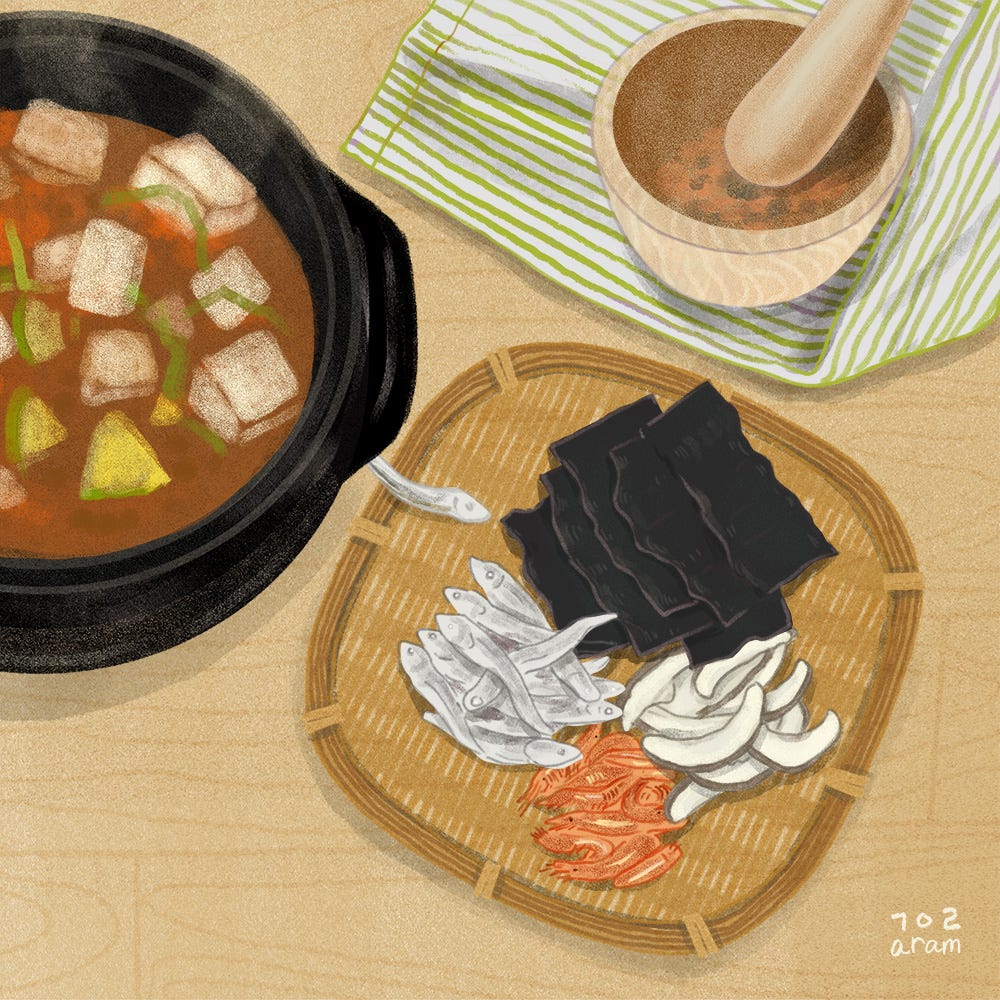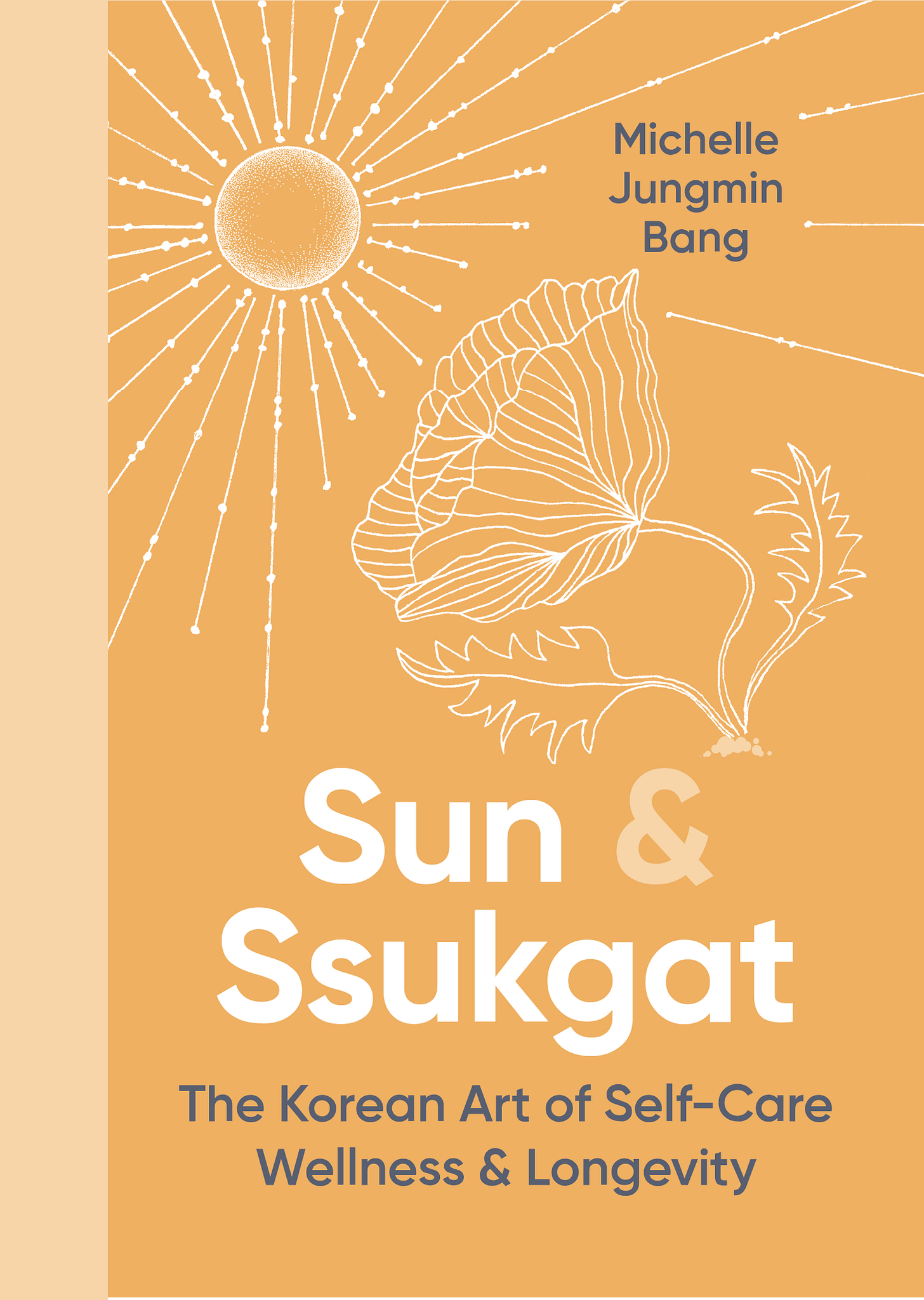Issue 56: Self-Care and Self-Love by Being Closer to Nature with Michelle Jungmin Bang
A Love Letter to the Korean Heritage and the Ancestral Wisdom
Hi KP!
When I first read the title of Michelle's new book Sun and Ssukgat, I felt a warm sense of relaxation wash over me, and realized how much I was craving to be closer to nature. It reminded me of my childhood in Korea when my grandmother took me to forage ssuk in the nearby mountains each spring, which we later enjoyed in doenjang-guk for dinner. During those outings, I tried chewing azalea at her suggestion, though five-year-old me decided it wasn't for me. The memory of being so connected to nature, even in the urban setting where I grew up, and eating food grown in the surrounding environment, remains deeply ingrained. Michelle's journey of searching for that nature-friendly way of living that Koreans maintained for centuries, albeit largely lost in modern society, reminded me how natural it once was and how it made people happy and healthy. It made me question: why not anymore? Is it impossible to live that way in modern society? Michelle says we can, and I'm all for it. I'm delighted to share Michelle's journey for answers here with KP. Please welcome Michelle Jungmin Bang!
KP Q&A with Michelle Jungmin Bang
Michelle Jungmin Bang is an award-winning eco-entrepreneur, Chivas Venture Social Impact Fellow, and Harvard Business School graduate who lives between New York and Hong Kong. She is the author of Sun & Ssukgat, a wellness guide covering her research, interviews, and personal eco-conscious journey in uncovering centuries-old well-being traditions from her time in Asia and Korea, where scientists project its people will top longevity charts in 2030. Michelle is the co-founder and founding CEO of The R Collective (formerly BYT), a sustainable fashion brand that creates affordable luxury pieces out of high-end materials that would otherwise have been disposed of in a landfill. Trained in East-West nutrition and natural preventative care, her latest book uncovers her eco-conscious journey to heal across Asia. Michelle is passionate about driving social impact and serves as a board director and founding member of various mission-driven organizations, most recently GrowNYC, an environmental non-profit focused on food access, agriculture, and green spaces. She can be found on Instagram here, and her website here, usually in a Patagonia tee, fleece, and jeans.
Introduce yourself more personally in 2-3 sentences.
My name is Michelle Jungmin Bang. I began to use Jungmin professionally after learning how my grandfather had chosen this name for me while writing Sun and Ssukgat, my book with HarperCollins. I grew up in a world of medicine and education; my father is a doctor from Seoul National University College of Medicine, and my mother is an educator who attended - on scholarship - NYU’s graduate school for mathematics after my siblings and I were fully raised which I think for her generation is quite unusual! I’m a curious polyglot who dives head-first into gaining expertise when I get really passionate about something. As a board director, entrepreneur, and author, my work is focused on driving positive outcomes in sustainability and health to build a better world for all. I love to read, write, and draw. I also love to solve business problems, so I went to business school, became an entrepreneur, and now serve on many different boards.
Where are you from? No, where are you REALLY from? (Haha!)
I was born and raised in Brooklyn and within the public school system. As an adult, I have one foot in the West and one in the East. After graduating from Harvard Business School, I split my time with my family between our two homes in Hong Kong and New York City. It’s very fun to see both sides of the world and the cultural differences and wisdom that come with this.
How would you describe yourself in five words?
Curious. 2. Multi-hyphenate. 3. Artistic. 4. Creative. 5. Out-of-the-box.
What do you love about being Komerican?
Taking pride in our Korean cultural wisdom as an American, especially now that I understand so much more after asking many questions to my parents and others while writing my book.
And of course, what are your favorite Korean foods?
There are two Korean foods which have many food memories for me. Doenjang was my grandmother’s specialty as I fondly remember watching her grind dried shrimp, seaweed, myeolchi, and mushrooms into a fine crisp to make the most delicious, nourishing broth for me. Second - samgyetang, my father’s specialty, which he would make for me as a recovery dish when I was feeling run down or ill. The protein and foundation of anti-inflammatory ingredients in the dish - ginseng, jujubes, and ginger - would always make me feel so much better.
What was your childhood like and what has it taught you?
I spent my childhood, often with family friends who were SNUCM doctors, with the shared experience of immigrating to the US from Korea. Together, our families cultivated an Americanized persona. There was a feeling that we had to assimilate seamlessly into American life, with our parents and grandparents very quickly conquering English, to succeed and survive in a new country.
Raised amongst this extended family of Korean doctors, I was exposed very early on to the practical applications in medicine, for example, using whole foods and holistic measures to recover from surgery, colds, pregnancies, and injuries. I didn't realize the importance of these lessons from my Korean heritage until I began my healing journey after experiencing a medical crisis while living and raising a family in Asia for two decades (and counting).
As a child, I was very artistic, always making things and crafting; I was also very musical, playing the piano and the oboe, and I nearly attended music school professionally. I read early and a lot. I had studied to go into medicine, intending to follow in my father's footsteps, but I later decided to pursue the industry's business side within healthcare investment banking, covering biotech and pharma.
In many ways, Sun and Ssukgat, my Korean health book, which I ultimately illustrated, is a surprising culmination of my early creative inclinations and experiences with healthcare, medicine, and Korean heritage. The book and my journey became a delightfully unexpected homecoming for me.
What do people underestimate about you?
Perhaps that I am more than one thing. In my professional and creative pursuits, I tend to extend my range of endeavors widely and dive deep when I want to learn more. I think intellectually this excites me when something is initially challenging and messy, and then having to learn to untangle it, and master it little by little every day.
Share your proudest moment in the past year.
I spoke at a large conference, sharing the insights behind Sun and Ssukgat for the first time. The best part of this event for me was connecting with those who heard my message and seeing how it changed them. I was floored when audience members found me after to let me know how my talk inspired hope, inspiration, and new ideas. They were repeating their learned lessons about tackling health spans (the length of time we get to be healthy, not just alive), terrain-based living (vs. germ theory), and the importance of using the whole plant. A guest at the event invited me to her home the next day for a homemade/home-grown meal to discuss what I had learned. That experience really underpinned the importance of sharing my message: that we can radically change our well-being philosophies to prevent, to self-care, and to preserve old wisdom as humanity continues forward with new science and new discoveries in medicine. It was perhaps my proudest moment - that the message of my personal journey and what I learned from that experience resonated and meant so much to others.
What was your hardest moment in the past year?
Any writer publishing their first book will not have a structured roadmap or someone to hold their hand. The hardest moments in the past year were when I had to scramble to get things done for the first time and at the drop of a dime. The experience taught me to embrace imperfection and immediately pivot, finding new solutions quickly when something wasn’t working. The last year was perhaps the most intellectually challenging, especially in getting the book to launch, beyond book writing.
Can you share something exciting that you’re working on now?
Since illustrating my book, I have been exploring different art forms, and watercolors, and working on studies in nature. I am fascinated by birds around the world. I am also working on a startup!
How do you love yourself?
Self-care, even looking into a mirror to check myself, is a newly formed habit for me since going on this health journey. I always put myself last, after my family, after my team or the mission of any organization I was attached to. But now, I make sure to take little moments to take care of myself and listen to what my body is trying to tell me.
How do you love others?
Thoughtful gestures, which I hope will bring a smile to a loved one, whether it is leaving a post-it note on a mirror or making something fun for them to eat. This is what I learned from going deeper into Korean Jeong. I was fascinated to know that a society could be so interconnected through small, heartwarming acts, even towards strangers. Now, I try to take time to smile and open doors for people, even if I don’t know them.
What five things can you not live without?
My family. 2. Books. 3. Electric water kettle. 4. Laptop. 5. Water bottle.
What’s your favorite dance song?
Stray Kids God’s Menu… not many people know this about me. =)
What’s your favorite kind of pie?
My favorite “pie” is a mille-feuille nabe hot pot, a flower-arranged mix of cabbage, meats, and other vegetables simmering in a collagen-rich broth!
This Q&A was filled out online and edited for length and clarity.
Dollop of Fun: Sun and Ssukgat
Filled with the author's deeply personal journey to reconnect with her Korean heritage, Sun and Ssukgat is a soul-stirring exploration of finding health and happiness through nature's wisdom. Michelle Jungmin Bang invites readers to walk alongside her as she uncovers ancient practices that have sustained Korean people for generations—practices that speak to our cellular memory and ancestral knowledge. The book is a nourishing companion for both body and spirit—a gentle guide back to the natural world. The author's lovely hand-drawn illustrations are the true icing on the cake in this special book, delicate visual poems that complement her words and deepen the book's healing resonance. Get a copy today, and check out the exceptional conversation between the author and Kathleen Kim (an Emmy-nominated producer and the talented puppeteer behind Sesame Street's Ji-Young!) at The Korea Society, where they talked about these themes of heritage and nature as well as their common Korean experiences growing up in different countries and cities (think cut fruits and public bath houses!).












Ooooh such a fun book up my alley! Thanks for introducing it and Jungmin to us!
I can’t wait to read this sounds exactly like what I need :) congratulations Michelle!